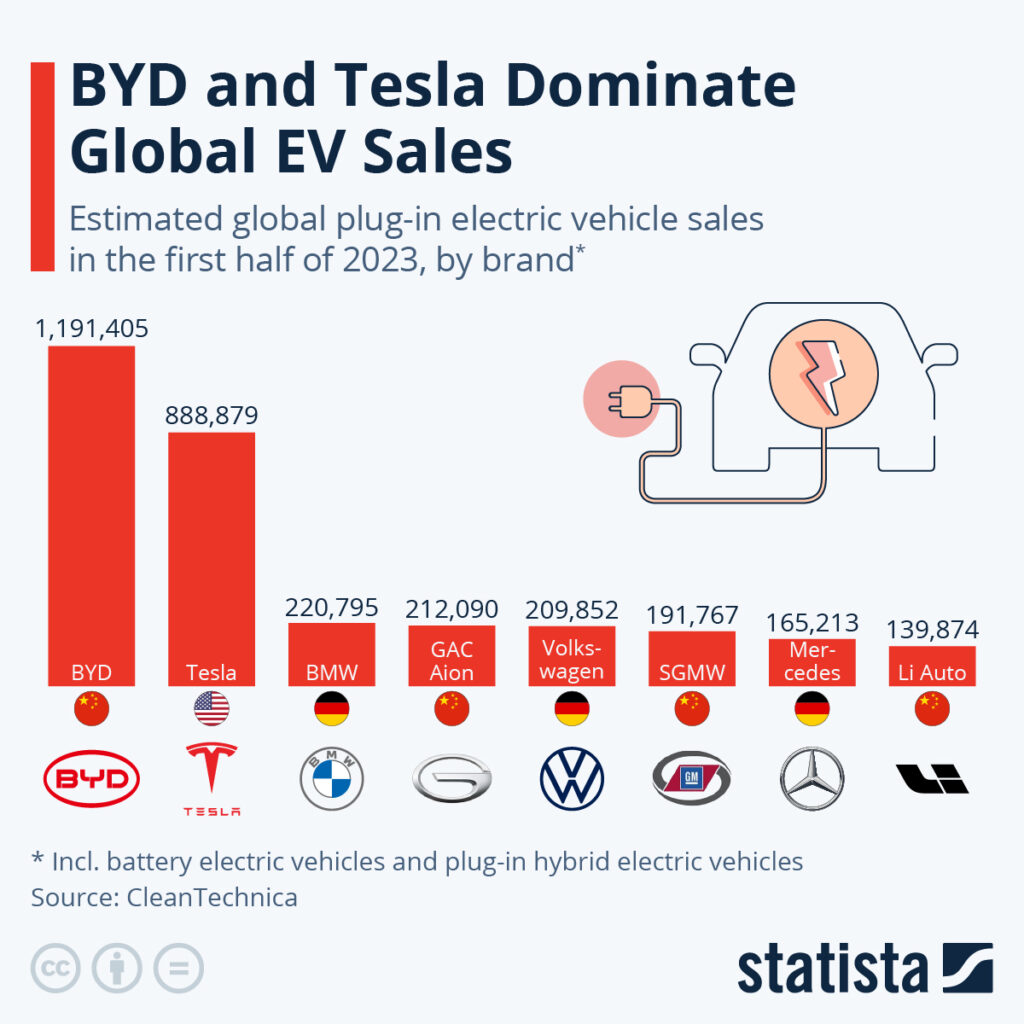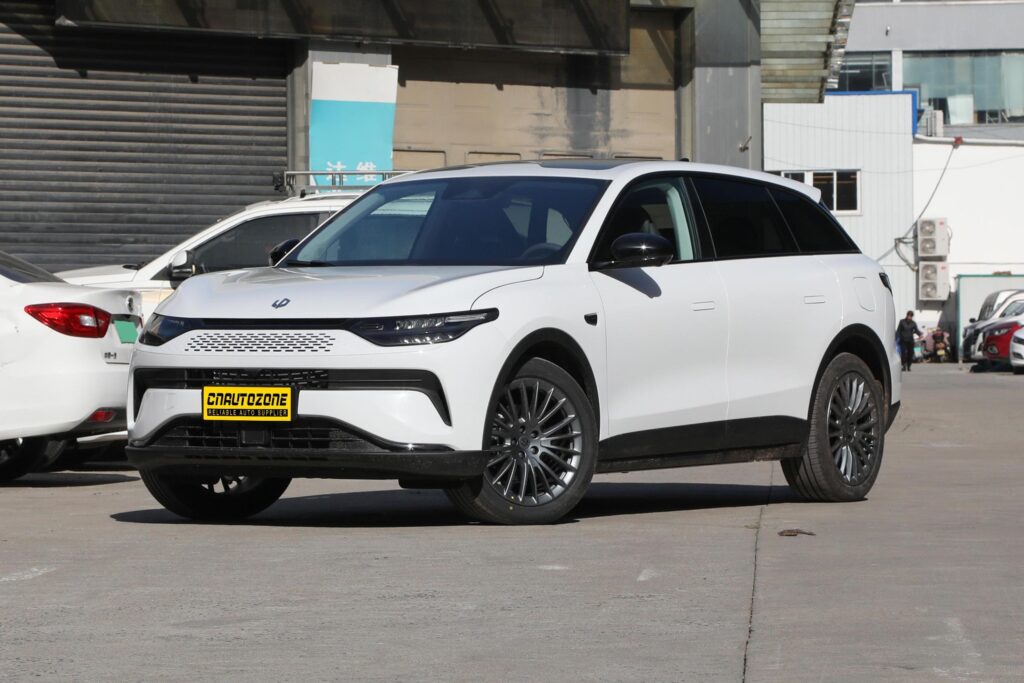As the world increasingly turns towards sustainable energy solutions, the electric vehicle (EV) industry has witnessed unprecedented growth, particularly in China. Fueled by government policies, investment in infrastructure, and a burgeoning consumer base, China has emerged as a global leader in the electric vehicle market. In this blog post, we will explore the top twenty electric vehicle brands in China, highlighting their contributions to the industry and the unique features that set them apart.

1. BYD
Founded in 1995, BYD Auto is one of the largest electric vehicle manufacturers in China and globally. It began as a battery manufacturer and successfully used its expertise in batteries to produce electric vehicles. BYD’s lineup includes electric buses, cars, and trucks, with models like the BYD Han and Tang gaining popularity for their performance and range.
2. Tesla (China)
While not a domestic brand, Tesla’s establishment of a Gigafactory in Shanghai has marked a significant milestone in the Chinese EV market. The Model 3 and Model Y have become immensely popular, benefiting from Tesla’s strong brand recognition, innovative technology, and extensive Supercharger network. Tesla’s presence has also spurred competition and innovation among Chinese manufacturers.
3. NIO
NIO has garnered attention for its high-performance electric vehicles, such as the ES8, ES6, and EC6. Established in 2014, the company focuses on premium electric SUVs and sedans, and it was a pioneer in battery swapping technology, allowing drivers to quickly exchange depleted batteries for fully charged ones, significantly reducing downtime.
4. Xpeng Motors
Xpeng Motors, founded in 2014, is known for its intelligent electric vehicles that integrate advanced AI technology. The G3 SUV and the P7 sedan are flagship models that highlight the company’s commitment to smart features and connectivity, appealing to tech-savvy consumers.
5. Li Auto
Li Auto has made a name for itself with its innovative range-extended electric vehicles (EREVs). The Li ONE, its flagship model, combines a battery with a small gasoline engine to enhance range and flexibility, catering to consumers who are concerned about charging infrastructure.
6. SAIC Motor Corporation
SAIC Motor, one of China’s largest automotive manufacturers, has developed its own electric vehicle brand, Roewe, alongside the MG brand. Models like the Roewe Marvel X and MG EZS showcase SAIC’s commitment to affordable yet technologically advanced electric vehicles.
7. Geely
Geely, a major player in the global automotive landscape, has made significant strides in the EV market through its brands such as Geometry. The Geometry A and Geometry C are examples of Geely’s approach to sustainable mobility, aiming to provide smart and stylish electric vehicles at competitive prices.
8. Great Wall Motors
Known primarily for its SUVs and pickups, Great Wall Motors has ventured into the electric vehicle market with its ORA brand. The ORA Black Cat and ORA White Cat are designed as stylish, affordable urban electric cars that target the growing market of young, eco-conscious consumers.
9. BAIC Group
BAIC’s electric vehicle division, BAIC New Energy, has introduced popular models like the EU series and the BJEV lineup. With a focus on electric buses and compact cars, BAIC aims to meet the diverse needs of urban consumers and address public transport electrification.
10. Changan Automobile
Changan is one of the oldest automotive manufacturers in China, and it has embraced the electric vehicle revolution through its brand, Changan New Energy. Models like the Eado EV and the Benni EV reflect the company’s dedication to producing affordable electric vehicles for the mass market.
11. JAC Motors
JAC Motors offers a wide range of electric vehicles, from commercial trucks to personal vehicles. The iEV series, in particular, has become a popular choice for consumers looking for reliable and economically viable electric transportation options.
12. Dongfeng Motor Corporation
Dongfeng has launched several electric models under various brand names, including the EQ series. The company’s commitment to electrification is evident in its investments in battery technology and partnerships with tech companies to enhance vehicle connectivity.
13. Zhidou D1
Focused on compact electric vehicles perfect for city driving, Zhidou is known for the D1 microcar. Its small size and affordability make it an attractive choice for urban commuters looking for an efficient and convenient mode of transport.
14. Hozon Auto
Established in 2015, Hozon Auto aims to deliver intelligent electric vehicles. Its Neta brand is particularly popular among younger consumers, featuring models like the Neta V, which combine technology, style, and sustainability.
15. Foton Motor
Foton has a strong focus on commercial electric vehicles, offering electric vans and trucks. The company is positioned to play a crucial role in the electrification of logistics and transportation sectors in China.
16. Kandi Technologies
Kandi is best known for its affordable electric vehicles, aiming to address the needs of budget-conscious consumers. The K23 and K27 models are designed specifically for urban use, providing a practical solution for city driving.
17. Faraday Future
While initially known for its ambitious electric supercar aims, Faraday Future has also started producing more accessible models. The FF 91 stands out with its luxury features and advanced technology, although the brand has faced challenges in production.
18. Electra Meccanica
A smaller player focusing on electric three-wheelers, Electra Meccanica’s flagship vehicle, the Solo, targets eco-conscious consumers who value efficiency and compactness, particularly in urban environments.
19. WM Motor
WM Motor aims to offer smart electric vehicles with competitive pricing. The EX5 is one of its most popular models, featuring a focus on connectivity and user experience, appealing to tech-savvy automotive consumers.
20. Lynk & Co
A new venture from Geely and Volvo, Lynk & Co focuses on urban mobility with a subscription model for its electric vehicles. The Lynk & Co 01 is designed for a younger demographic, emphasizing connectivity, shared ownership, and sustainable driving.
Conclusion
The electric vehicle landscape in China is diverse and rapidly evolving. Each of these twenty brands contributes uniquely to the industry, catering to varying consumer preferences, from budget-friendly options to high-end luxury vehicles. As technology advances and consumer demand for sustainable mobility continues to rise, these brands will play a pivotal role in shaping the future of transportation, not just in China but globally. The continuous investment in research and development, along with government support, sets the stage for a dynamic and competitive electric vehicle market in the years to come. cnautozone car expert

